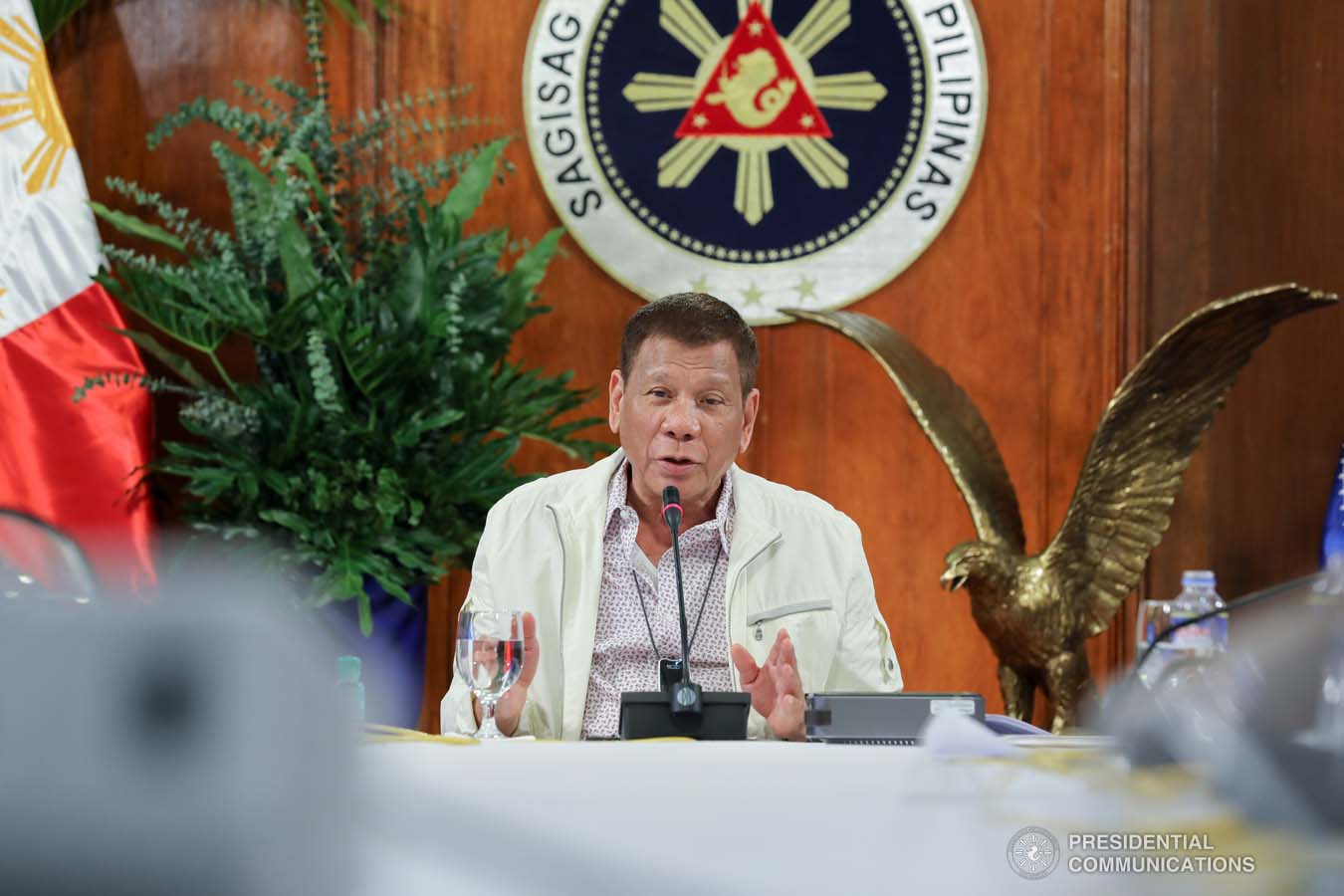News
PRRD sees ‘no problem’ in 14-day detention under anti-terror bill

FILE: President Rodrigo Roa Duterte holds a meeting with members of the Inter-Agency Task Force on the Emerging Infectious Diseases (IATF-EID) at the Malago Clubhouse in Malacañang on June 22, 2020. ROBINSON NIÑAL JR./PRESIDENTIAL PHOTO
MANILA – President Rodrigo R. Duterte has no problem with the provision of the anti-terrorism bill that would allow suspected terrorists without arrest warrants to be detained for 14 days, Malacañang said on Wednesday.
Presidential Spokesperson Harry Roque said although the President has yet to read the controversial measure himself, he saw nothing wrong with the provision that allows a 14-day detention period because it does not change the provision in the 1987 Constitution that a judge would issue a warrant of arrest if there is “probable cause.”
“He does not feel that the 14-day period is actually a violation of the Constitutional provision that a warrant of arrest can only be issued by a judge because the law does not change that Constitutional rule,” Roque said in an interview over ABS-CBN News Channel’s Headstart.
He said the anti-terrorism bill also contains a provision where law enforcement officers who made the warrantless arrest should give a notice to the court.
“After the pre-trial detention of 14 days, extendable for another 10 days, and notice has to be given to the nearest judge, it is still the court that will issue a warrant of arrest for purposes of actually arresting him or for the purpose of the court acquiring jurisdiction over the person of accused,” Roque said.
He said the President, a trial fiscal, has a “clear distinction” between pre-trial detention and warrant of arrest for purposes of court jurisdiction.
According to Roque, the President likewise agreed to the provision in the bill that allows law enforcement officers to seek an extension of 10 days for the detention.
“The warrant of arrest is actually required to acquire jurisdiction over the person as far as the court is concerned and we did not amend that law. It is still only the judge that can issue a warrant of arrest for purposes of jurisdiction,” he said.
Roque also contradicted the statement made by retired Supreme Court Senior Associate Justice Antonio Carpio that the provision of the bill, which authorizes the anti-terrorism council (ATC) to order the arrest of a suspected terrorist, as well as his or her detention for up to 24 days, violates the Constitution.
“We beg to disagree because it is still the courts that will designate a person as a terrorist organization. In fact, you have to file a petition with the Court of Appeals not just with the regional trial court,” he said.
Though the President was “inclined” to sign the bill after certifying it urgent, Roque said Duterte would not allow any constitutional infirmities present in the proposed law.
“I think barring constitutional infirmities, he is inclined to sign it but he wants to see the bill,” he added.
Currently, the Office of the Executive Secretary, particularly the Deputy Executive Secretary for Legal Affairs, is still finalizing their inputs to be submitted to the President.
The Office of the Chief Presidential Legal Counsel and the Department of Justice have already submitted their feedback.
“He (the President) has declared publicly that his legal office is looking into it and that he will look into it himself and he will take one to two days upon receipt of the recommendations from the Office of the Executive Secretary and will then decide whether to sign or not to sign,” Roque said.
The anti-terrorism bill seeks to beef up the provisions of the Human Security Act of 2007.
Under the measure, the detention of suspected terrorists for up to 24 days sans a warrant of arrest will be permitted.
It also allows a 60-day surveillance with an allowable 30-day extension that can be conducted by the police or the military against the suspected terrorists.
Any person who will threaten to commit terrorism will suffer a penalty of 12 years. The same jail term will be meted against those who will propose any terroristic acts or incite others to commit terrorism.





















